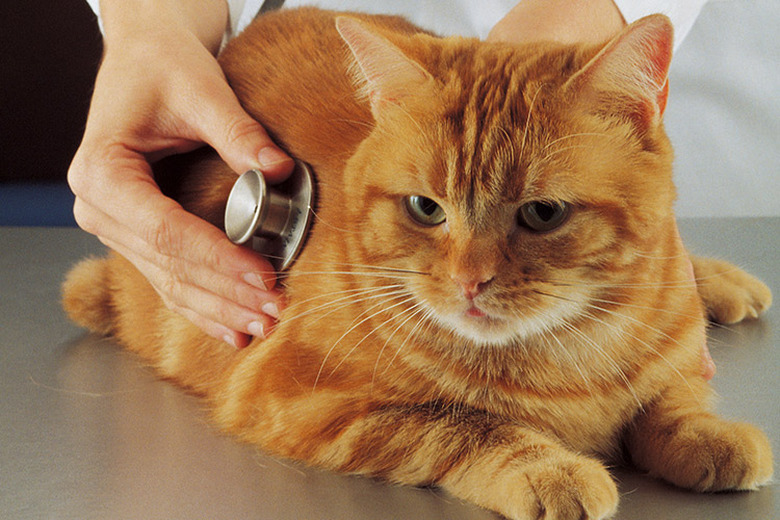Cat Asthma Vs. Hairballs
If you notice your cat coughing, you may be wondering if the cause is cat asthma or a hairball. If it is a hairball, you will likely see your cat retching and gagging and eventually throwing up a hairball, but with asthma, you are more likely to see nonproductive coughing and other symptoms, such as wheezing. If your cat does not throw up a hairball and continues coughing, take him to the vet for a proper diagnosis.
Cat cough vs. hairball
Cat cough vs. hairball
The difference between a cat cough and a hairball is that the cough is a symptom of a hairball. A hairball is a fairly common occurrence for many cats because they consume loose fur as they are grooming. They will retch and gag to throw up the hairball.
Hairballs aren't usually a problem, but in some cases, they can form an obstruction, and your cat may be unable to throw up or pass the hair out of her system. In addition to the symptoms of a normal hairball, you may also notice that your cat is vomiting, lethargic, or has lost her appetite. Seek veterinary attention immediately if you see these symptoms.
Hairball treatment and prevention
Hairball treatment and prevention
Weekly brushing can go a long way toward preventing hairballs. Long-haired cats need to be brushed more frequently. You can further reduce loose fur by wiping your cat with a cloth after grooming. Make sure your cat has plenty of water available at all times. If your cat frequently coughs up hairballs, consider switching to a cat food designed to reduce hairballs.
If your cat is unable to pass the hairball on his own, your vet may advise you to give your cat a hairball medication that will help him pass the hairball. If the hair is forming a blockage in your cat's digestive system, surgery may be required to remove it.
Cat asthma symptoms and diagnosis
Cat asthma symptoms and diagnosis
In addition to a cough that doesn't produce a hairball or vomit, there are some other symptoms you will see if your cat has an asthma attack. You may notice your cat crouching down, hunching her shoulders, and extending her neck. Her cough may produce foamy mucus. You may notice that she is breathing quickly and that her breathing seems labored. Wheezing, blue lips and gums, and mouth breathing are other symptoms during an asthma attack.
An asthma attack can quickly be life-threatening. If your cat has difficulty breathing, is taking more than 40 breaths per minute, or has deep chest movements with labored breathing, this is a veterinary emergency. Take your cat to the vet or emergency clinic right away.
Asthma is not easy to diagnose in cats. Your vet will likely perform a variety of tests to rule out other conditions. These may include chest X-rays, blood tests, fecal parasite tests, bronchoalveolar lavage, and a cardiac exam.
Feline asthma treatment
Feline asthma treatment
Unfortunately, there is no cure for asthma, but it can be managed. Your vet may prescribe medication, such as a bronchodilator or corticosteroids. These medications may be injected, administered orally, or given with an inhaler.
Evaluate your environment and minimize any possible triggers for an asthma attack. These may include things like mold, pollen, dust from cat litter, cleaning products, and cigarette smoke. There is no single best food for cats with asthma. Consult your veterinarian to discuss the options and make the best choice for your cat.


